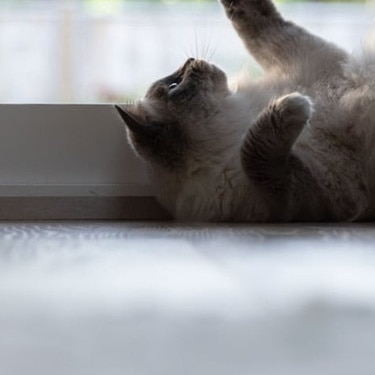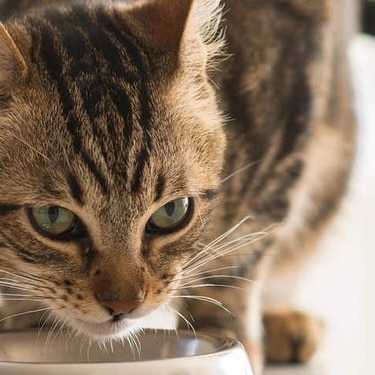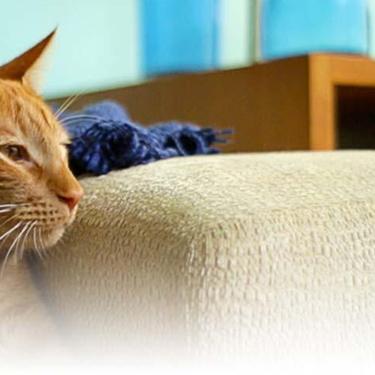
-
Find the right food for your petTake this quiz to see which food may be the best for your furry friend.Find the right food for your petTake this quiz to see which food may be the best for your furry friend.Featured products
 Sensitive Stomach & Skin Dog Food
Sensitive Stomach & Skin Dog FoodHill's Science Plan Sensitive Stomach & Skin Adult Wet Dog Food with Chicken is a complete premium dog food for adult dogs from 1 year. This savoury tinned loaf is enriched with ingredients that support digestive health & skin care.
Shop Now Perfect Weight Small & Mini Adult Dog Food
Perfect Weight Small & Mini Adult Dog FoodHill's Science Plan Adult Small & Mini Dog Food with Turkey is a complete premium pet food for adult small dogs from 1 year old that are prone to weight gain or slightly overweight. This deliciously smooth mousse is formulated to deliver the appropriate amount of energy to support weight maintenance in adult dogs.
Shop Now Perfect Digestion Small & Mini Adult Dog Food
Perfect Digestion Small & Mini Adult Dog FoodHill's Science Plan Perfect Digestion Small & Mini Adult Dog Food with Turkey is a complete premium pet food for small breed adult dogs aged 1–6 years. This deliciously smooth mousse is precisely balanced to deliver the appropriate amount of energy and to support digestive health in adult, small breed dogs.
Shop NowFeatured products Adult Multipack Wet Cat Food with Beef, Ocean Fish & Chicken
Adult Multipack Wet Cat Food with Beef, Ocean Fish & ChickenTender chunks in gravy for cats, with high-quality protein to maintain lean muscle. With vitamin E and omega-3s & -6s for healthy skin and balanced minerals to support healthy vital organs.
Shop Now Mature Adult Wet Cat Food with Chicken
Mature Adult Wet Cat Food with Chicken
Tender chicken chunks in gravy for mature adult cats. Made with easy-to-digest ingredients, high-quality protein for lean muscle maintenance and antioxidant vitamins C+E for optimal health.
Shop Now Light Adult Multipack Wet Cat Food with Chicken & Ocean Fish
Light Adult Multipack Wet Cat Food with Chicken & Ocean FishTender chicken chunks in gravy for cats, with L-carnitine and fewer calories for ideal weight management. Packed with high-quality protein, omega-6s, and vitamin E for shiny fur and healthy skin.
Shop Now -
Dog
- Dog Tips & Articles
-
Health Category
- Weight
- Food & Environmental Sensitivities
- Urinary
- Digestive
- Joint
- Kidney
-
Life Stage
- Puppy Nutrition
- Adult Nutrition
- Senior Nutrition
Cat- Cat Tips & Articles
-
Health Category
- Weight
- Skin & Food Sensitivities
- Urinary
- Digestive
- Kidney
-
Life Stage
- Kitten Nutrition
- Adult Nutrition
Featured articles The Right Diet For Your Pet
The Right Diet For Your PetIn people, the right diet is very important. If you are eating the wrong way for your metabolism, activity level, age and lifestyle you could end up with health issues.
Read More The Incredible Science Behind Your Pet's Microbiome
The Incredible Science Behind Your Pet's MicrobiomeLearn what your pet's microbiome is, how it contributes to your pet's gut and overall health, and why nutrition is important in maintaining healthy microbiomes.
Read More Show some love with wet foods: a great choice for pets with health issues
Show some love with wet foods: a great choice for pets with health issuesShow some love with wet foods: a great choice for pets with health issues.
Read More -


Most cats are very particular about their toilet habits and will consistently use a litter tray indoors or go in the garden. If they are spraying or urinating in the corner of the room or other odd places around the house, however, it can be worrying as well as unpleasant. It can also be a sign of a medical or stress-related problem, so it’s important you look for any inconspicuous upsets or hidden physical conditions.
Is your cat spraying or urinating indoors?
Spraying and urinating are two very distinct actions. Cats use urine as a scent signal or 'mark' for themselves and other cats. The motivation for scent-marking is very different to that of urination to relieve a full bladder. It is therefore important to establish whether the cat is spraying or urinating, since the potential solutions will vary. To urinate, the cat squats and deposits a volume of urine on a horizontal surface. The cat may then scratch at the area around the urine, although this is not always the case. Common sites for inappropriate urination include carpets, settees, duvets, baths or sinks. To spray urine, the cat stands up, usually making a treading motion with their back feet, while quivering the tail, and a small amount of urine is sprayed backwards onto a vertical surface, such as a wall or corner of a piece of furniture, leaving an obvious scent mark. Common sites for spraying include around doors, windows or cat flaps, curtains, electrical equipment and shopping or rubbish bags. Once it has been ascertained which of the two the cat is doing, you can then take action to try to resolve the behaviour.
How to clean cat urine
Whether a genuine accident or not, once your cat has urinated in a particular spot, it’s important to thoroughly clean that spot to stop it from becoming a habit. Unless the smell is completely removed, your cat’s sensitive nose will be able to pick up any lingering smell of urine, which will serve as a trigger to urinate there again.
The best way to break the habit is to keep the cat away from the area as long as possible, remove any smell that the cat can detect and change the geography of the location by using pieces of furniture to block access. Wash the area with an enzymatic or probiotic cleaning solution and allow it to dry. These products are designed to break down the smells that are associated with urine. Carpet is extremely absorbent, and urine often penetrates the full thickness of the carpet to the flooring underneath, making professional cleaning necessary. If the area is badly soiled over a long period, the carpet may become unsalvageable and it may be necessary to remove it and treat the concrete or floorboards underneath before replacing.
Why has my cat started urinating in the house?
Medical problems
A cat that has started to urinate inappropriately in the house should be promptly taken to the vet for a check-up to make sure there are no medical causes of the behaviour change.
- Stress cystitis is a very common cause of incontinence. This may be for a number of reasons. Cystitis is an inflammation of the bladder and is very painful. Cats may start to associate their litter tray with pain and so look for other places to urinate. Cystitis also causes the cat to feel that they need to urinate all the time, so they may simply not make it to the tray or the garden in time. Urinary tract infections are rare in cats, but cystitis caused by chronic stress is very common. This can cause many health issues, some of which are life threatening. You can read all about the signs, causes and treatments of stress cystitis, or feline idiopathic cystitis (FIC), as it’s also known, here.
- Joint disease/osteoarthritis (OA). Osteoarthritis is a common yet under-diagnosed condition in cats, who are very good at hiding signs of discomfort and pain. Pain in the hips, spine and joints of the legs can make fully squatting to urinate very uncomfortable. Cats with OA may not want to go outside to urinate because of the extra effort. This may be especially noticeable in cold or wet weather. If you don’t already have indoor litter trays, it might solve the problem if you get some for your home. Make sure they are in quiet, secluded places, and always have one more tray than the number of cats you have to avoid conflict and ensure there is always somewhere clean to go. If you do have litter trays, try shallower ones with lower edges, and change to a softer litter to make getting in the tray as comfortable as possible. Talk to your vet about medications to help alleviate the pain.
The pain of both cystitis and OA can prevent cats from squatting fully. This can sometimes make it more difficult to differentiate between urinating and spraying. Medical issues should always be ruled out first, no matter what.
Why have my cats started spraying indoors?
All cats, male or female, neutered or not, can spray. Usually this occurs outdoors as a part of the scent communication system. They also leave scent signals by rubbing their faces against objects to deposit pheromones produced by the facial glands or scratching their nails against objects to deposit pheromones produced by the glands between their toes. Cats leave scent not just to advertise their presence to other cats but to cover the area with their own familiar smell.


Tasty Tips
In the un-neutered cat, urine also communicates breeding status. Toms use it to claim territory and queens use it to attract toms during breeding season.
Most pet cats are neutered and do not spray indoors. Spraying indoors is a sign that the cat is feeling stressed and needs to make themselves feel more secure by surrounding themself with their own scent. The most common cause is the presence of other cats, either within the house or in the neighbourhood. However, a new baby or person in the household, construction work, redecoration or a change of routine can similarly induce indoor spraying in anxious or timid cats or cats who are already experiencing stress in other aspects of their lives.
Threats from neighbouring cats
Other cats in the neighbourhood may pass through or around your property, spend time in your garden, or even enter your home. This is extremely stressful for the resident cat(s). Even seeing a strange cat sitting in ‘their’ garden can create stress for some cats. In response, your cat may spray around a cat flap, window or door to signal their presence to trespassing cats. If your cat has been stressed by another cat entering the house, there are several actions you can take – remove whatever is enticing the intruder (usually a bowl of ad-lib food), and use alternatives, e.g. a microchip-activated pet feeder that only opens when your cat approaches the bowl. Temporarily block up the cat flap and let your cat in and out yourself. Fitting a cat flap that reads microchips can also prevent further invasions. Deter other cats from entering your garden using a motion-activated sprinkler when your cat is safely indoors. Use commercially available pheromone products to make indoors feel like a safe space again.
Decorating and construction work
Nervous cats or indoor-only cats may feel stressed or threatened by changes to their environment. Redecorating or replacing furniture effectively removes all the subtle markings your cat may have placed by rubbing and scratching. To reduce the impact of these changes, keep the cat away from the rooms until the smells are not quite so strong and have mingled with the familiar scents around the house. You can help speed up this process by spreading some of the cat's scent yourself. Take a soft cotton cloth and rub it gently around the cat's face (where scent glands produce the cat's own unique scent). The secretions collected contain pheromones that send a message of familiarity and security directly to the cat's brain. Rub the cloth against furniture or walls at cat height where the problem is occurring and repeat this several times a day to create a scent signal that deters spraying. Commercially available cat pheromone products act in the same way and can be used as an alternative. If you are changing your couch, for example, it often helps to plan ahead and drape a throw blanket over it for a few weeks beforehand which can be draped over the new piece of furniture to make it smell more familiar and acceptable.
Help your cat feel secure
Even when the cause of spraying is not obvious, there are ways you can make your cat feel more secure. For example, limiting the area the cat has to patrol to one or two rooms or using over-the-counter calming supplements during periods of stress or upheaval may help improve feelings of security and reduce the desire to mark. Consulting with a qualified professional who can provide personalised recommendations for your home can be invaluable. When a cat is simply too stressed for the situation ever to be resolved, it is worth considering re-homing the threatened cat (or the aggressor) to a place with no other cats. Without the pressure of having to cope with other cats, the threatened cat is unlikely to spray, and this way you can guarantee your cat will be happier. Even an aggressive cat is often stressed in a multi-cat environment and may benefit from being the only cat in the home.
Specialist help
Spraying and urinating can be cured in many cats using the techniques outlined here. In some cases, the problem can be more persistent, and it is advisable to discuss it with your veterinary surgeon rather than leave it to resolve on its own. Getting expert behavioural advice early on can make all the difference. The longer you leave an undesired behaviour, the more ingrained it may become and the more difficult to resolve.
Reviewed by Dr. Hein Meyer, DVM, PhD, Dipl-ECVIM-CA and Dr. Aileen Pypers, BSc, BVSc, PGDip.


One of our staff authors prepared this article for you
Related products

Hill's Science Plan Adult Sterilised Cat Dry Food with Salmon is specially formulated with ActivBiome+ Multi-Benefit Technology. It is a precisely balanced nutrition, tailored to meet the needs of sterilised cats, to help keep them lean & healthy.

Hill's Science Plan Perfect Digestion Cat Food with Chicken & Brown Rice nourishes your cat's unique microbiome and helps them reach their full potential.

Hill's Science Plan Hairball & Perfect Coat Adult Cat Food with Chicken is formulated to effectively help avoid hairball formation in adult cats while promoting a beautiful coat. Thanks to its mix of essential omega-6 fatty acids, this food benefits the cat's skin and fur, keeping them healthy and shiny. Our Advanced Fibre Technology helps reduce hairballs by naturally promoting their passage through the gut. This food is formulated with high-quality protein for a perfectly balanced, great-tasting recipe.

Hill's Science Plan Sensitive Stomach & Skin Adult Wet Cat Food with Turkey is a complete pet food for adult cats, aged 1–6 years. This highly digestible wet food comes in a pouch and supports healthy digestion, as well as nourishes skin and promotes a thick and lustrous coat.
Related articles

Find out about how you can support your cat's digestion to boost overall health. Diet is key to a long and happy life for your cat, so discover what you can do.

Feeding time can be a wonderful bonding opportunity for you and your cat. Find out how to make the most of it and create a healthy habit with HIll's Pet UK.

Discover what you can do to spot and support a sensitive cat stomach. See what routines and food you can implement to help your cat be happy and healthy.

Find the right Hill

Put your cat on a diet without them knowing
Our low calorie formula helps you control your cat's weight. It's packed with high-quality protein for building lean muscles, and made with purposeful ingredients for a flavourful, nutritious meal. Clinically proven antioxidants, Vitamin C+E, help promote a healthy immune system.
Put your cat on a diet without them knowing
Our low calorie formula helps you control your cat's weight. It's packed with high-quality protein for building lean muscles, and made with purposeful ingredients for a flavourful, nutritious meal. Clinically proven antioxidants, Vitamin C+E, help promote a healthy immune system.

